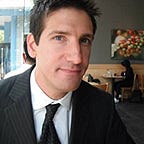Pennsylvania’s Statute of Limitations on Clergy Abuse
Unless one has been living in a cave somewhere out in Utah, then you probably read the papers or seen the news about children all over the world who suffered unspeakable acts of sexual abuse at the hands of clergy members of the Catholic Church. It could take survivors of this type of abuse years or even decades to speak about what happened to them as children, due to embarrassment or other issues. The current statute laws in Pennsylvania regarding child sexual abuse have allowed many pedophile priests and the bishops who covered up their actions to walk free. No matter if a crime happened against a child yesterday or two decades ago, every victim should be able to have their say in court and the church should have to answer to the allegations against them. Pennsylvania’s current statute laws regarding sexual abuse of a minor needs to be changed, to allow victims a chance to be heard, if they so choose to come forward.
Under the current amendment, which can be found at 42 Pa. C.S. 5533 Section (b) (2) (ii), victims of sex abuse who were under the age of 18 when the abuse occurred, now have until their 30th birthday to file suite. This statute is not enough, however, because it only applies to those individuals who turned 18 after the statutes enactment in 2002. If a new House Bill 661 was to pass, actions could be taken until a victim turns 50. One of the bills sponsors is Rep. Mark Rozzi (D-Berks) who is also a victim of clergy abuse. The current law enables many priest who abused children decades ago never to be prosecuted, and allows church documents to never be released for public viewing.
My brother and I, both survivors of clergy abuse; understand first-hand how hard it can be to come forward and admit what had happened. It took us years to come to grips with the whole reality of the situation. This is why Pennsylvania needs to follow suit with other states in allowing a one or two year window of discovery that would allow victims of sexual abuse to file a civil lawsuit against the church and the bishops who tried to hide the misconduct from public view. I believe this is the only way that the catholic church would make sure that these crimes against children would never happen again under their leadership.
Advocates for victims are pressing lawmakers in several states to lift time restrictions, so more people who were abused can be compensated. The catholic church has successfully beaten back such proposals in many states, arguing that is difficult to get reliable evidence when decades have passed and when changes seem more aimed at bankrupting the church than easing the pain of victims. The church feels that they already had to close churches and lay off workers due to lawsuits that have already been settled. In several states, the church filed for bankruptcy, and church officials believe any more lawsuits will destroy the Catholic Church completely.
One can understand the church’s concerns about some people who are just out to make a quick dollar off the church, but what about the legitimate claims of abuse? It takes some victims decades to come forward and tell their story, and many more will never come forward, because they are afraid or ashamed. This is why there should be no time restrictions on sex crimes against children. At the very least, allow victims of abuse a window of opportunity to come forward with their claims. I know in my case, the priest that abused my brother and I (Fr. Francis Kulig), was allowed to hide amongst parishes by a bishop who was well aware of his past actions and behaviors.
Some might argue that too much time has passed, but the church does keep records of incidents regarding priest that were accused or suspected of inappropriate contact with minors. One has to look no further than the recent Grand Jury report of the hundreds of priests accused of misconduct in Pennsylvania, to know that the church knew about allegations against these child predators for decades. I believe the church’s records should act as proof in court, even when the accused priest has passed away, or significant time has passed.
As of March 28, 2014, the U.S. Conference of Catholic Bishops (USCCB) has counted 6,427 clerics “not implausibly” and “credibly” accused in the period 1950–2013 of sexually abusing minors. This number is staggering, but imagine how many priest are not on that list due to loopholes in current laws.
Lawmakers need to change the current statute laws and allow victims of childhood sexual to have their voices heard. A change in State Law would also enable laws such as Megan’s Law to be required for accused priest entering back into society. Sexual abuse can take years, even decades, to fully come to grips with, and therefore, the courts need to take that into consideration and update the current statute laws. Perhaps, one day, Pennsylvania will follow in the footsteps of other states and give people their chance to confront the Catholic Church in a court of law.
The only thing we could do as a community, is continue to write our state representatives, and hold rallies to raise awareness about the current statute laws. Organizations like “SNAP” and house representatives like Mark Rozzi continue to fight for victims of clergy abuse. The road to justice and reform runs through Harrisburg. This is not just a Catholic Church problem, this is a problem that involves any institution or perpetrator with access to children. If the Pennsylvania Grand Jury report has taught us anything, it is this: The church knew about the abuse and they chose to cover it up. If we don’t hold ourselves accountable for our actions, then we can never move forward as a society.
